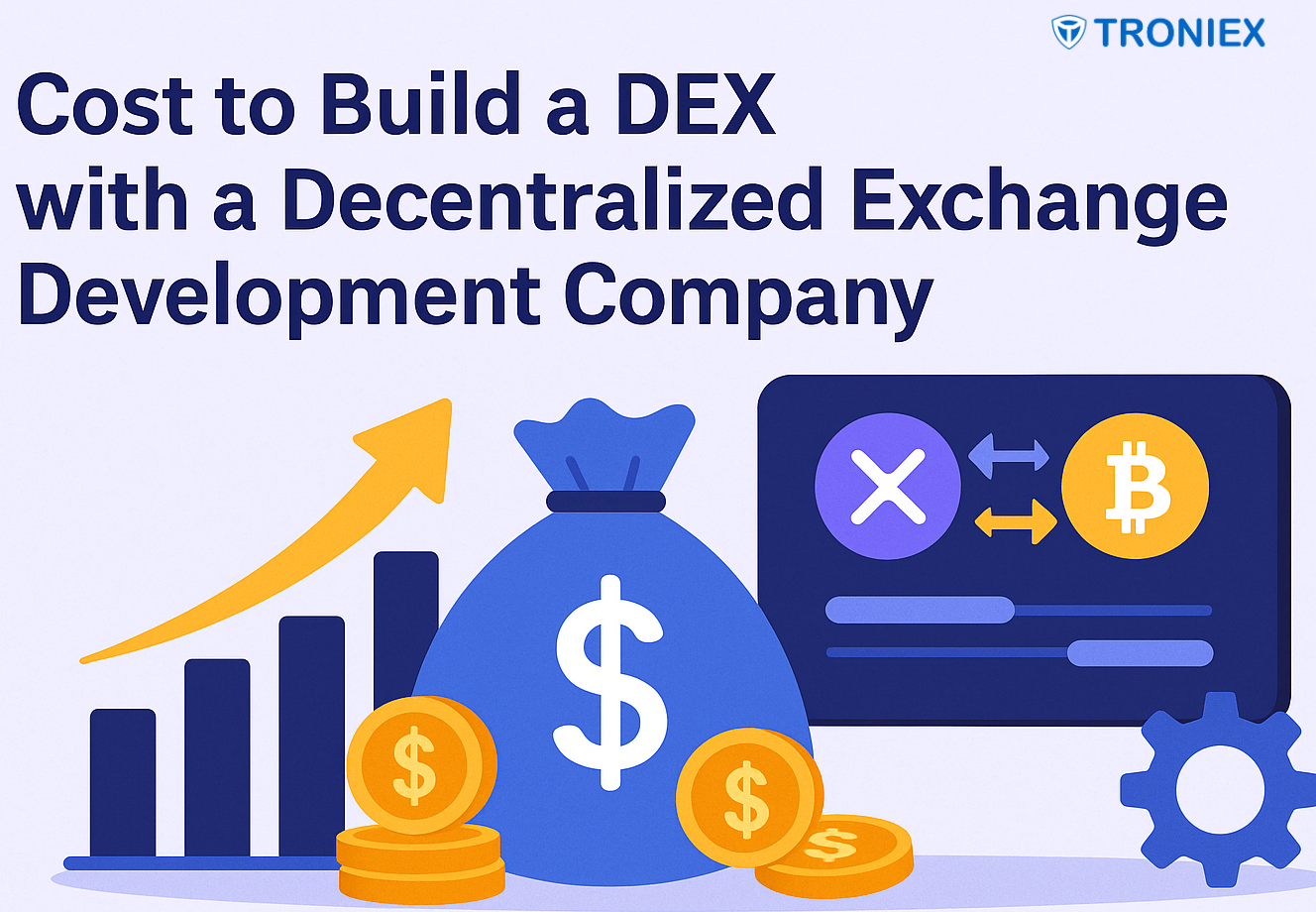
Cost to Build a DEX with a Decentralized Exchange Development Company
Discover the cost to build a DEX with a decentralized exchange development company, including key features, price breakdown, and smart ways to save in 2025.

Decentralized exchanges (DEXs) are becoming the cornerstone of modern crypto trading, offering users privacy, control over funds, and no need for intermediaries. As DeFi adoption surges, many entrepreneurs and blockchain businesses are turning to specialized decentralized exchange development company to launch custom DEX platforms. But how much does it really cost to build a DEX in 2025?
Let’s break down the key cost factors and give you a clear idea of what to expect when working with a decentralized exchange development company.
What is a DEX?
A DEX is a blockchain-based exchange that allows users to trade cryptocurrencies peer-to-peer without handing over custody of their funds to a third party. Popular DEXs like Uniswap, PancakeSwap, and SushiSwap operate using smart contracts, automated market makers (AMMs), and liquidity pools. Unlike centralized exchanges (CEXs), DEXs are permissionless, transparent, and often built on networks like Ethereum, BNB Chain, or Polygon.
Factors That Influence the Cost to Build a DEX
The total cost of DEX development depends on several key factors:
1. Type of DEX
-
Order Book-Based DEX: Like dYdX or Loopring, these require more complex backend systems and real-time matching engines.
-
AMM-Based DEX: Like Uniswap or PancakeSwap, these are typically more cost-efficient to develop due to reliance on smart contracts and liquidity pools.
Cost Impact: Order book models are more expensive due to their complexity and infrastructure demands.
2. Blockchain Network Choice
Building on Ethereum is costlier due to high gas fees and security standards, while networks like BNB Chain, Polygon, or Avalanche offer cheaper alternatives.
Cost Impact: Blockchain choice affects both development and deployment costs.
3. Core Features and Customization
Common features include:
-
Wallet integration (MetaMask, WalletConnect)
-
Token swapping
-
Liquidity pools and farming
-
Yield optimization
-
Governance via DAO
-
KYC (if needed)
-
Analytics dashboard
More customization = higher cost. Pre-built templates are cheaper but offer limited flexibility.
4. UI/UX Design
An intuitive, responsive, and user-friendly interface is essential for adoption. Custom UI/UX design, mobile responsiveness, and branding add to the budget.
5. Security & Audits
DEXs are frequent targets for exploits. Smart contract audits by third parties (e.g., CertiK, Hacken) are vital and can cost $5,000–$50,000 depending on complexity.
6. Development Team Location & Expertise
Hiring a top-tier decentralized exchange development company from regions like the US or Europe may cost more than working with firms based in India or Southeast Asia.
Benefits of Hiring a Decentralized Exchange Development Company
Partnering with a professional development company can streamline the process and improve the end product:
-
Expertise: Teams familiar with Solidity, smart contracts, and DeFi protocols.
-
Time-saving: Faster launch with ready-made modules and reusable code.
-
Security: Built-in protections and best practices to prevent exploits.
-
Ongoing Support: Many offer post-launch maintenance, upgrades, and marketing assistance.
Reducing the Cost: Smart Strategies
-
Start with MVP (Minimum Viable Product): Launch with core swapping and wallet functionality; expand later.
-
Use White-Label Solutions: Some companies offer customizable DEX clones at a fraction of the cost.
-
Open-Source Protocols: Build on audited, battle-tested codebases like Uniswap v2/v3 to reduce development time.
Final Thoughts
The cost to build a DEX with a decentralized exchange development company ranges widely, but most quality projects fall in the $50,000 to $100,000 range. The investment is worthwhile given the potential revenue from trading fees, token listings, liquidity programs, and ecosystem growth.
Choosing the right development partner is critical. Look for experience, transparency, post-launch support, and a strong security track record. With the right team and strategy, your DEX can be a powerful player in the future of decentralized finance.





